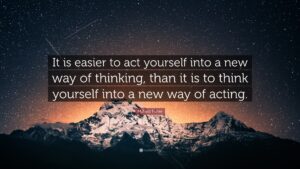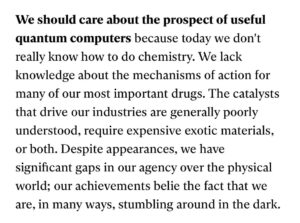
Think Fast: Folks, this is crazy: AI models went from $100 million to $5 million to $30 in a week. I particularly enjoyed this paragraph from the article: “To put this breakthrough in perspective, the telegraph reduced the time it took the Pony Express to deliver a message from St. Joseph, Missouri, to Sacramento, California, by 99.93 percent—from 10 days to 10 minutes. Pan’s $30 TinyZero program slashed the cost of DeepSeek’s $5 million model by 99.9994 percent.” For farmers, one practical application of this astounding advance is that crop breed will soon be greatly enhanced–and accelerated.
Think Imaginatively: Next week, I will be giving a short presentation entitled “Imagining the Future” to the Regional Council of Mayors in Minnesota. In the course of talk, I will provide ample examples of how cities around the world are actively reimagining everything from affordable housing and education to transportation and water. One of the interesting things to note is that regardless of which political party holds power at the federal level, cities are taking independent action on important issues. This news about Boston adopting a new “net zero” zoning requirement for new buildings is just one small example. Meanwhile, in Canada, Calgary is using vacant office to create urban farms.
Act–then Think: The founder of Habitat for Humanity, Millard Fuller, once said: “It is easier to act your way into a new way of thinking than to think your way into a new way of acting.” I have found this to be true. Earlier this week, I shared a shared a video on TikTok about my concern over Milepost 7–a large toxic basin that sits only miles from Lake Superior. To make a long story short that simple action has prompted me to take another action of writing a letter to the CEO of Cleveland Cliffs (the company responsible for creating the toxic sludge) asking how his company is working to ensure that its mess is not simply left for future generations to deal with. I have not received a response yet but now that I aware of the seriousness of the issue as well as the extreme threat it poses to current and future generations I feel I have a moral obligation to continue taking action. (As you know, I am all in favor of thinking but, something, we must take action. My advice: Find a problem in this world–big or small–that needs to be addressed and take action. The world will be better for it.)
Think Again: I have written extensively about fellow futurist Simon Anderson’s idea of a keeping a “counterpoint file”–which is essentially nothing more than a systematic method of recording of evidence of trends moving in a direction opposite than that which you originally expected. Last year, I was mildly bullish that Apple would succeed in making augmented glasses a practical reality. It now appears I was overly optimistic. The company is scrapping its augmented reality “smart glasses.” (As the late, great Yogi Berra once said: “It is difficult to make predictions, especially about the future.”)
Think Harder: I speak a great deal to farming and agricultural groups and often, after my presentations, a few farmers will express their concern that “Bill Gates is buying up all the farmland.” Now, I am sure Gates owns a great deal of land but it is actually Microsoft which is buying most of the land. The reason is because the company sees an opportunity to make money by applying artificial intelligence to regenerative agriculture. Another reason Microsoft is buying land is because it is interested in offsetting the company’s large and growing carbon footprint. This week’s news that the company just inked a deal with Chestnut Carbon to store carbon for the next 100 years by reforesting 60,000 acres is a case-in-point.
Think Visually–and Exponentially: MIT recently posted this article: Useful quantum computing is inevitable and increasingly imminent. It is behind a paywall but here is the operative paragraph:

Afterthought: “Tradition is not the worship of ashes, but the preservation of fire.” Gustav Mahler
